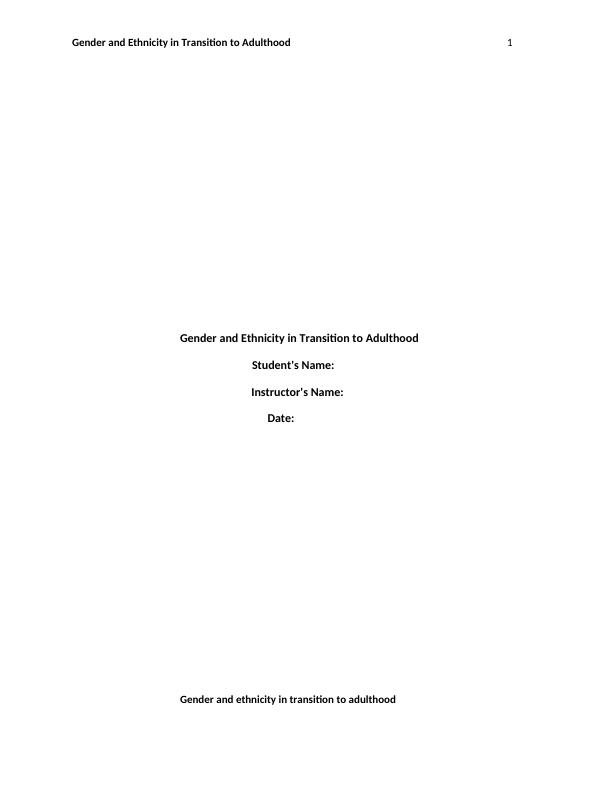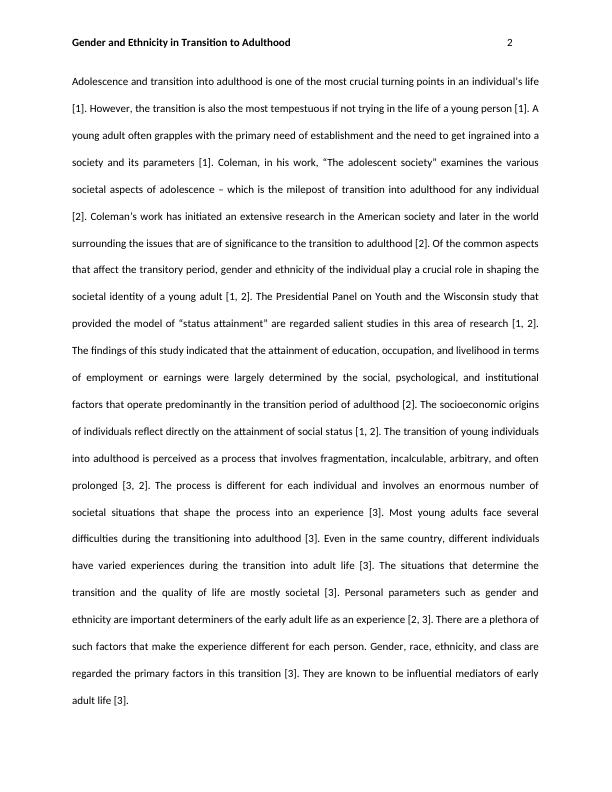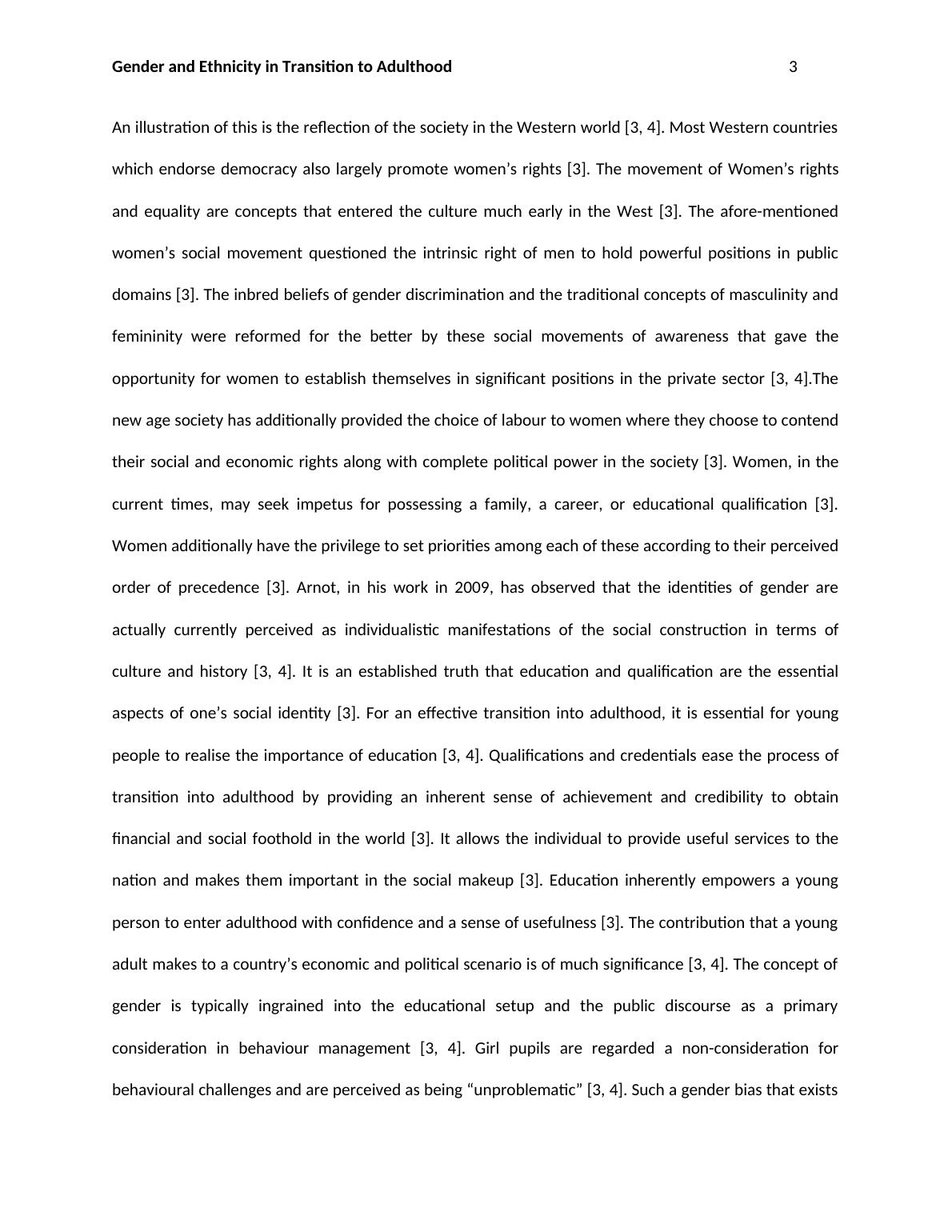Gender and Ethnicity in Transition to Adulthood
8 Pages2176 Words263 Views
Added on 2023-04-05
About This Document
This article examines the impact of gender and ethnicity on the transition to adulthood. It explores how societal factors shape the experiences of young adults and the role of education and career choices in this transition.
Gender and Ethnicity in Transition to Adulthood
Added on 2023-04-05
ShareRelated Documents
End of preview
Want to access all the pages? Upload your documents or become a member.
Study Of Evaluation Gender & Ethnicity In Transition To Adulthood
|6
|4060
|68
Report On Origin Of Adolescence & Theoretical Perspectives
|11
|3439
|109
Health Advancement and Health Promotion Proposal for Youths in MENA Region
|23
|6581
|478
Report On Theoretical Perspectives Of Young People Transition
|12
|3884
|144
The Transition from Adolescence to Adulthood
|4
|851
|32
Adolescent to Adulthood Development
|12
|3048
|62



